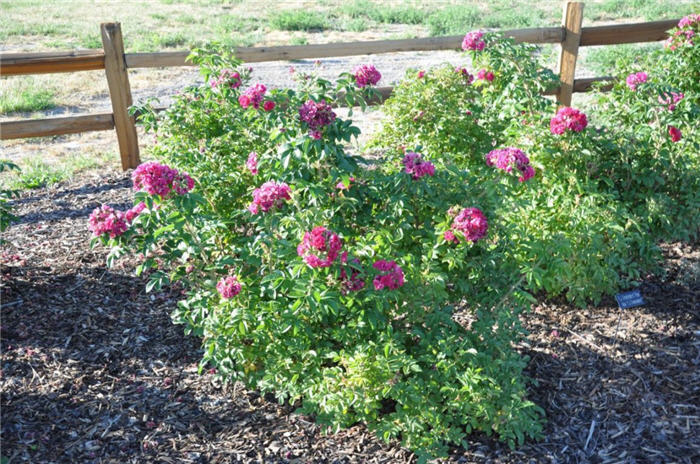| Botanical Name: Rosa rugosa 'F.J. Grootendorst' | |
| Common Name: F.J. Grootendorst Rose |

-
Anatomy
-
Culture
-
Design
Plant Type
Shrub
Height Range
3-6'
Flower Color
Red
Flower Season
Summer
Leaf Color
Green, Dark Green
Bark Color
Brown
Fruit Color
Red
Fruit Season
Winter, Fall
Sun
Full
Water
High, Extra in Summer
Growth Rate
Fast
Soil Type
Loam
Soil Condition
Average, Rich, Well-drained
Soil pH
Neutral
Adverse Factors
Thorns/Spines
Design Styles
English Cottage, Formal, Mediterranean, Ranch, Spanish
Accenting Features
Fragrance, Showy Flowers, Specimen
Seasonal Interest
Winter, Spring, Summer
Location Uses
Background, Perennial Border, Shrub Border, Foundation, Patio
Special Uses
Cut Flowers, Hedge, Mass Planting
Attracts Wildlife
Birds, Butterflies
Information by: Stephanie Duer
Photographer:
Photographer:
-
Description
-
Notes
This rose forms a small, dense mound with stiff, prickly stems that form a nearly impenetrable barrier. Grows about 4 to 5 feet tall and wide or wider. Foliage is bright green, heavily crinkled, and disease resistant. Ruffled-petaled flowers are cranberry red and slightly fragrant. Flowers are borne in clusters. Primary bloom occurs in late spring to early summer, though they tend to repeat bloom. An excellent hedge or border. Also available in a white and red form.
Grow in sandy-loam to clay-loam, well drained soils in full to part sun. Provide good air circulation and remove fallen leaves to help prevent disease. In late winter or early spring, prune back by up to 1/3, reducing side shoots by 1/2 to 1/3. To renovate, prune one in four or five shoots from the base. Avoid overhead watering as the practice encourages disease. See Guides for more details. Rugosa roses tend to be hardier and less disease prone than are the hybrid teas.